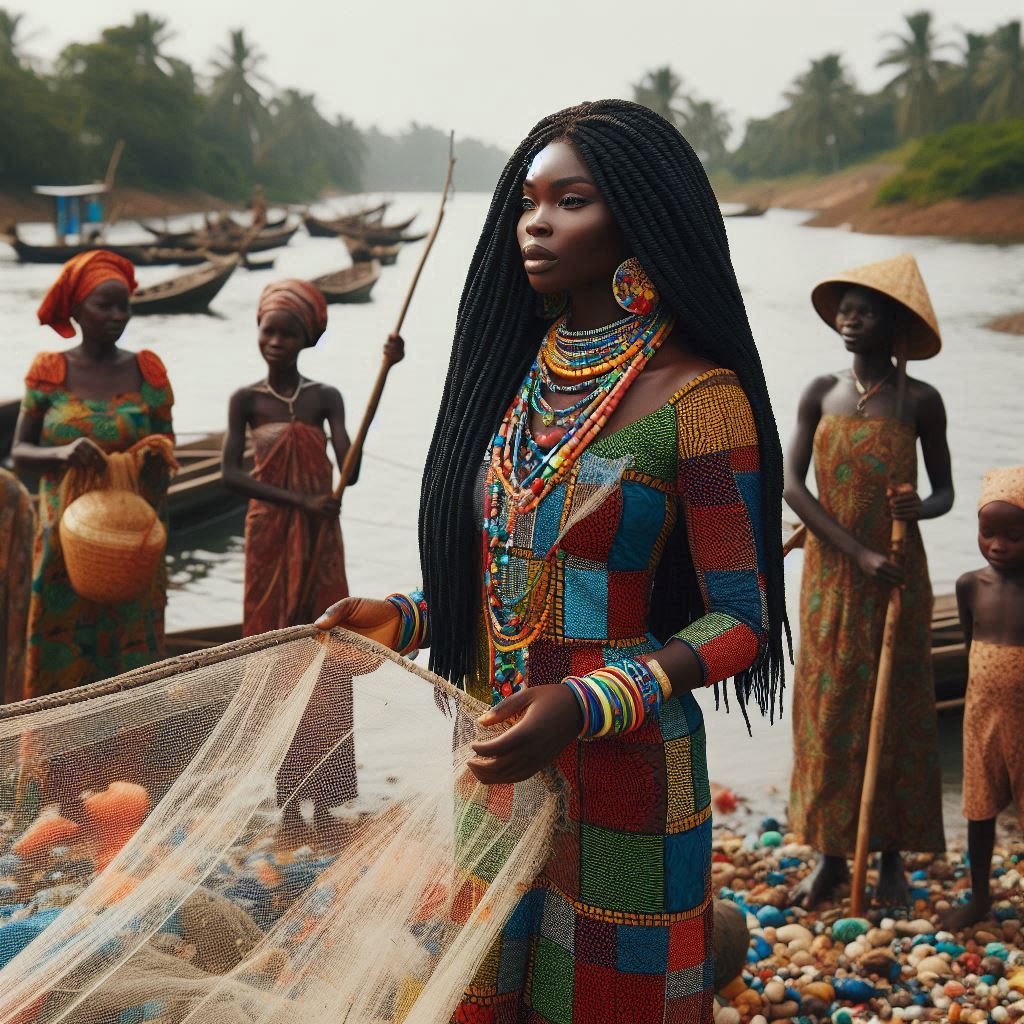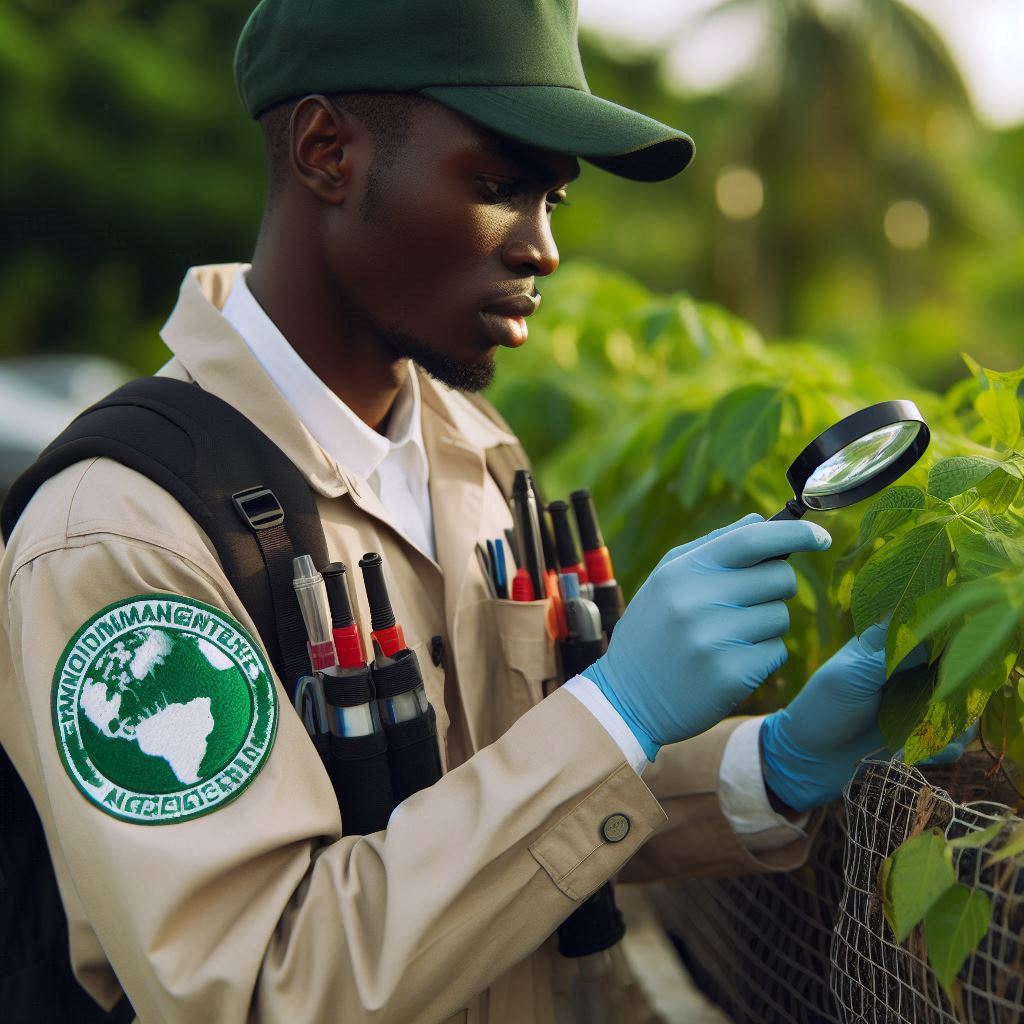Introduction
Nigeria’s fisheries sector is not just a vital component of its economy but also a cornerstone of its food security and cultural heritage.
Spanning coastal regions, inland waters, and riverine communities, fisheries sustain millions of livelihoods and contribute significantly to the nation’s protein intake.
Traditional fishing practices, deeply rooted in local customs and knowledge, have historically supported sustainable fishing.
However, these practices now confront challenges from overfishing, environmental degradation, and climate change impacts.
These issues threaten the long-term sustainability of fish stocks and the well-being of fishing communities.
In response to these challenges, there is a growing emphasis on adopting best practices and innovative approaches within Nigeria’s fisheries.
This paradigm shift involves integrating modern technologies, promoting sustainable fishing methods, and enhancing conservation efforts.
By embracing innovation, Nigeria aims to improve fisheries management, increase productivity, and mitigate environmental impacts.
This blog post seeks to delve into the evolving landscape of Nigerian fisheries, focusing on initiatives that promote sustainable practices and innovative solutions.
It will explore how stakeholders, including government agencies, research institutions, and local communities, are collaborating to address these challenges.
Through these efforts, Nigeria strives to ensure the resilience of its fisheries sector while preserving marine ecosystems for future generations.
Current State of Nigerian Fisheries
Statistics on the Contribution of Fisheries to the Nigerian Economy
Nigeria’s fisheries sector is a critical component of its economy, providing livelihoods for over 6 million people across coastal and inland communities.
It contributes approximately 4.5% to the country’s Gross Domestic Product (GDP), highlighting its economic significance. Fisheries not only support local economies but also play a crucial role in ensuring food security by providing a vital source of protein for millions of Nigerians.
Challenges Faced by the Fishing Industry in Nigeria
The Nigerian fishing industry faces multifaceted challenges that threaten its sustainability and productivity. Overfishing remains a significant concern, driven by increasing demand and inadequate regulatory frameworks.
This practice depletes fish stocks, disrupts marine ecosystems, and jeopardizes the livelihoods of fishing communities.
Pollution, including industrial discharge and improper waste disposal, further degrades aquatic habitats and poses health risks to marine life and consumers of fish products.
Additionally, the lack of essential infrastructure such as cold storage facilities, efficient transport networks, and market access limits the sector’s potential for growth and profitability.
Importance of Sustainable Fishing Practices
In light of these challenges, the adoption of sustainable fishing practices is crucial to safeguarding Nigeria’s marine resources for future generations.
Sustainable practices aim to conserve fish populations, protect biodiversity, and maintain the ecological balance of marine ecosystems.
Initiatives such as the establishment of marine protected areas, implementation of fishing quotas, and promotion of responsible fishing techniques are essential steps towards achieving sustainability.
These measures not only ensure the resilience of fish stocks but also support the economic stability of fishing communities and enhance food security nationwide.
Efforts to promote sustainability in Nigerian fisheries are ongoing. Government agencies collaborate with non-governmental organizations and local communities to enforce regulations, educate fishers on sustainable practices, and monitor compliance with environmental standards.
Capacity-building programs provide training and resources to empower fishers with the knowledge and skills needed to adopt sustainable fishing methods effectively.
Basically, while Nigerian fisheries face significant challenges, proactive measures and collaborative efforts are crucial to securing a sustainable future for the sector.
Addressing issues such as overfishing, pollution, and infrastructure deficits will not only protect marine ecosystems but also ensure continued economic benefits for fishing communities and contribute to national food security goals.
By prioritizing sustainability, Nigeria can preserve its rich marine biodiversity and support the well-being of its coastal populations for generations to come.
Best Practices in Nigerian Fisheries
Implementation of Sustainable Fishing Methods
Sustainable fishing practices are crucial for maintaining Nigeria’s fish populations. Fishermen should use selective gear to avoid catching juvenile fish.
This practice helps ensure that fish populations remain healthy and robust. Additionally, the use of fish aggregating devices (FADs) can minimize the environmental impact of fishing.
FADs attract fish, making it easier to catch them in a targeted manner. Limiting the number of fishing days and implementing seasonal closures can also help protect fish stocks.
These measures give fish populations time to reproduce and replenish. Educating fishermen about the importance of sustainable practices is essential. Training programs can teach them how to use eco-friendly methods effectively.
Use of Technology in Tracking Fish Populations
Technology plays a vital role in modern fisheries management. Satellite tracking and GPS systems help monitor fish movements and populations.
These tools provide accurate data on fish stock levels, enabling better management decisions. Electronic logbooks and reporting systems streamline data collection for fishermen.
This technology reduces the administrative burden and improves data accuracy. Sonar and underwater drones can assess fish populations and their habitats.
These devices help identify overfished areas and protect critical habitats. Mobile apps can also assist fishermen in reporting catches and observing regulations. Real-time data collection ensures that authorities have up-to-date information on fish stocks.
Importance of Government Regulations and Enforcement in Preserving Fish Stocks
Government regulations are essential for sustainable fisheries management. Laws should set clear limits on the amount of fish that can be caught.
Quotas help prevent overfishing and ensure long-term fish stock health. Marine protected areas (MPAs) should be established to conserve vital ecosystems.
MPAs provide safe havens where fish populations can recover and thrive. Effective enforcement of regulations is critical to their success.
Patrol boats and surveillance systems can detect illegal fishing activities. Penalties for violations should be strict to deter non-compliance.
Collaboration between government agencies and local communities enhances enforcement efforts. Community involvement ensures that regulations are respected and followed.
Regulations should also address the use of harmful fishing practices. Banning destructive methods like dynamite fishing protects marine environments.
Promoting the use of sustainable gear and techniques supports conservation efforts. Providing incentives for compliance can encourage fishermen to adopt sustainable practices.
Financial support for sustainable fishing initiatives can drive positive change. Research and data collection are crucial for informed policy-making. Ongoing studies on fish populations and ecosystems help refine regulations.
Stakeholder engagement is important for developing effective policies. Involving fishermen, scientists, and conservationists ensures that regulations are practical and beneficial.
Read: Environmental Impact Assessments in Fisheries
Innovations in Nigerian Fisheries
Introduction of Aquaculture to Supplement Wild Fish Stocks
Nigeria has seen a remarkable shift with the introduction of aquaculture. This innovation aims to supplement wild fish stocks. Traditional fishing methods alone can’t meet the growing demand for fish.
Therefore, aquaculture presents a viable solution. Fish farms are springing up across the country, transforming the fisheries landscape.
These farms focus on species like tilapia and catfish, which are highly popular. Aquaculture ensures a steady supply of fish year-round. This reduces the pressure on wild fish populations.
Farmers use controlled environments to rear fish, which enhances productivity. This method also provides employment opportunities, boosting local economies.
Training programs for fish farmers are widespread. They teach best practices and new techniques. This knowledge transfer has led to increased efficiency. As a result, fish production has significantly increased.
The government supports these initiatives through funding and policy development. This has created a conducive environment for aquaculture growth. Partnerships with international organizations have further bolstered this sector.
These collaborations bring in expertise and additional resources. The success of aquaculture in Nigeria is evident. It demonstrates how innovation can address food security challenges.
Use of Fish Aggregating Devices (FADs) to Attract Fish to Specific Areas
Fish aggregating devices (FADs) are revolutionizing Nigerian fisheries. These devices attract fish to specific areas, making them easier to catch. FADs consist of floating or submerged objects that fish gather around.
They mimic natural features, creating ideal habitats for various species. Fishermen use FADs to locate schools of fish efficiently. This reduces the time and effort spent on fishing trips. As a result, operational costs decrease while catch rates increase.
The use of FADs also contributes to sustainable fishing. By concentrating fish in designated areas, it minimizes overfishing in others. This helps in managing fish populations better.
The technology is simple yet effective. Fishermen are quickly adopting FADs, realizing their benefits. Training sessions on the deployment and maintenance of FADs are common. These sessions ensure that fishermen use the devices correctly and sustainably.
The government promotes FAD use through various initiatives. Policies are in place to regulate and monitor their deployment.
This ensures that FADs contribute positively to the fishing industry. Collaboration with research institutions aids in refining FAD designs. These improvements increase their effectiveness and sustainability.
FADs are proving to be a game-changer in Nigerian fisheries. They exemplify how technology can enhance traditional practices.
Adoption of Eco-Friendly Fishing Gear to Reduce Environmental Impact
Eco-friendly fishing gear is becoming the norm in Nigeria. Traditional gear often harms marine ecosystems. The shift to sustainable options mitigates this damage.
Eco-friendly gear includes biodegradable nets and traps. These alternatives reduce bycatch and habitat destruction. Fishermen are increasingly aware of the importance of conservation. They understand that protecting the environment ensures future fish supplies.
Training programs emphasize the use of sustainable gear. These initiatives highlight the long-term benefits of eco-friendly practices. The government enforces regulations on fishing gear.
Compliance ensures that all fishermen adopt these sustainable methods. Research and development focus on improving gear designs. Innovations aim to balance efficiency with environmental protection.
Support from non-governmental organizations plays a vital role. They provide resources and education on sustainable fishing. International partnerships also contribute to these efforts.
The collective goal is to maintain healthy marine ecosystems. Sustainable fishing gear is crucial for this objective. It represents a significant step towards responsible fisheries management.
By adopting eco-friendly gear, Nigeria sets an example for global fisheries. This move underscores the commitment to preserving marine biodiversity.
Read: Overview of Environmental Management in Nigeria
Collaboration and Partnerships
Importance of Collaboration Between Government, NGOs, and Fishing Communities
Collaboration between government, NGOs, and fishing communities is crucial for sustainable fisheries. These partnerships ensure comprehensive and effective management of fish resources.
The government sets regulations and provides support. NGOs bring expertise and resources to the table. Fishing communities contribute local knowledge and firsthand experience.
Together, these groups can address the complex challenges facing Nigerian fisheries. Joint efforts lead to better decision-making and resource management.
This collaborative approach promotes sustainability and preserves fish stocks for future generations.
Examples of Successful Partnerships in Promoting Sustainable Fisheries
Several successful partnerships demonstrate the power of collaboration in Nigerian fisheries. One notable example is the partnership between the Nigerian government and the World Wide Fund for Nature (WWF).
This collaboration focuses on promoting sustainable fishing practices. They have implemented training programs for local fishermen.
These programs teach eco-friendly methods and the importance of conservation. Another successful partnership involves the Nigerian Conservation Foundation (NCF) and coastal fishing communities.
NCF works with these communities to establish marine protected areas (MPAs). These MPAs safeguard vital fish habitats and promote biodiversity.
The Nigerian Institute for Oceanography and Marine Research (NIOMR) collaborates with local universities. This partnership conducts research on fish populations and ecosystems.
Their findings inform policy decisions and help refine fishing regulations. The collaboration between government agencies and private sector companies also proves beneficial.
Private companies provide technological solutions for monitoring and enforcement. These tools help track fish stocks and detect illegal fishing activities. Successful partnerships like these illustrate the positive impact of collaboration in fisheries management.
Benefits of Knowledge Sharing and Capacity Building
Knowledge sharing and capacity building are essential components of successful collaborations. When partners share information, they enhance their collective understanding of fisheries.
This shared knowledge leads to better strategies and practices. Training programs and workshops build the capacity of local fishermen. These initiatives teach them sustainable fishing techniques and the importance of conservation.
Educated fishermen are more likely to adopt eco-friendly practices. Capacity building also strengthens the enforcement of regulations. Well-trained enforcement officers can effectively monitor and protect fish stocks.
Knowledge sharing extends to scientific research and data collection. Collaborative research projects provide valuable insights into fish populations and ecosystems.
This information helps policymakers develop informed regulations. Partnerships with international organizations bring global best practices to Nigerian fisheries.
These practices can be adapted to local contexts for maximum benefit. Capacity building also involves providing necessary resources and support.
Access to modern fishing gear and technology enhances sustainable fishing efforts. Financial support for community-based projects drives local conservation initiatives.
Read: Role of Fisheries in Nigerian Food Security

Training and Education
Role of Training Programs in Teaching Fishermen About Sustainable Fishing Practices
Training programs play a crucial role in Nigerian fisheries. They teach fishermen about sustainable fishing practices. These programs provide essential knowledge and skills.
Fishermen learn to minimize environmental impact. Training covers topics like proper gear use and fish handling. Sustainable practices help maintain fish populations.
This ensures long-term viability of the fishing industry. Programs often include practical demonstrations and workshops. These hands-on sessions reinforce theoretical knowledge. Fishermen understand the benefits of sustainable fishing.
Government agencies organize many of these training programs. They collaborate with local communities to reach more fishermen. Non-governmental organizations also contribute significantly.
They bring resources and expertise to the training efforts. International bodies support these initiatives through funding and technical assistance. Training programs often lead to certification.
Certified fishermen gain recognition and access to better markets. This incentivizes more fishermen to participate in training.
Sustainable fishing practices also enhance product quality. Consumers increasingly prefer fish caught sustainably. This demand drives further adoption of best practices.
Importance of Educating the Younger Generation About Preserving Fish Stocks
Educating the younger generation is vital for preserving fish stocks. Schools integrate fisheries education into their curricula. Students learn about marine ecosystems and conservation.
Field trips to fish farms and fisheries provide practical exposure. These experiences foster a connection with nature.
Young people understand the importance of sustainable fishing. This knowledge influences their future behavior. They become advocates for conservation in their communities.
Environmental clubs in schools focus on fisheries issues. Members participate in projects that promote sustainability.
These activities include beach clean-ups and fish habitat restoration. Youth involvement in conservation creates lasting impact. They bring fresh ideas and enthusiasm to the cause.
Education initiatives often include community outreach. Schools collaborate with local fishermen to share knowledge. This intergenerational exchange strengthens community bonds. Young people respect traditional knowledge while introducing new concepts.
Government and NGOs support educational programs. They provide materials and resources for effective teaching. Campaigns highlight the importance of preserving fish stocks.
Media outreach targets both students and the broader community. Success stories inspire others to take action. Educating the youth ensures a sustainable future for fisheries. They grow up understanding the critical balance needed in marine environments.
Collaboration with Universities and Research Institutions
Collaboration with universities and research institutions enhances fisheries knowledge. These partnerships drive innovation in the industry. Universities offer specialized courses in fisheries science.
Students gain advanced skills and understanding. Research institutions conduct studies on fish populations and ecosystems. Their findings inform sustainable practices.
Joint projects between fishermen and researchers are common. These collaborations test new techniques and technologies. Fishermen provide practical insights that shape research directions.
Universities host workshops and seminars for industry professionals. These events disseminate the latest research findings. Continuous education keeps fishermen updated on best practices.
Research institutions develop eco-friendly fishing gear. These innovations reduce environmental impact while maintaining efficiency.
Government bodies fund many collaborative projects. They recognize the value of research in policy development. Industry stakeholders also invest in these partnerships.
They see the benefits of improved knowledge and technology. Collaboration extends to international institutions.
Global expertise enhances local capabilities. These partnerships build a robust knowledge base. They ensure Nigerian fisheries remain competitive and sustainable.
Training and education form the backbone of sustainable fisheries. They empower fishermen and engage the youth. Collaborations drive innovation and improve practices. Together, they ensure the future of Nigerian fisheries.
Read: Environmental Biology Conferences and Seminars
Case Studies
Successful Fisheries Projects in Nigeria
In recent years, Nigeria has seen several successful fisheries projects that have made a significant impact on the industry.
One such project is the Youth Empowerment in Aquaculture Program in Kebbi State, which aims to train young people in aquaculture practices.
This project has not only provided employment opportunities for the youth but has also increased the production of fish in the region.
Another successful project is the Lagos Fish Farm Estate, which is a government-owned fish farm that provides training and support to local fish farmers.
This project has helped to boost fish production in Lagos State and has improved the livelihoods of many small-scale fish farmers.
Innovative Approaches in Different Regions
Innovative approaches in fisheries management have been adopted in different regions of Nigeria, leading to improved productivity and sustainability.
The use of cage culture in rivers and reservoirs in the Niger Delta region has resulted in increased fish production and reduced pressure on wild fish stocks.
In the Northern region of Nigeria, integrated fish farming systems that combine fish farming with agriculture have been successful in providing food security and income for rural communities.
These innovative approaches have helped to diversify livelihoods in these regions and reduce dependency on wild fish stocks.
Transform Your Career with Expert Guidance
Get personalized mentorship consulting that’s tailored to your unique path. Our expert advice is actionable and exclusive.
Get StartedImpact on Local Communities and the Environment
The successful fisheries projects in Nigeria have had a positive impact on local communities and the environment.
By providing training and support to local fish farmers, these projects have improved livelihoods and reduced poverty in many rural areas.
Additionally, increased fish production has helped to meet the growing demand for fish in Nigeria, contributing to food security in the country.
Furthermore, these projects have promoted sustainable fishing practices and reduced the pressure on wild fish stocks, contributing to the conservation of fish species and aquatic ecosystems.
By incorporating sustainable practices into fisheries management, these projects are helping to protect the environment for future generations.
Overall, the case studies of successful fisheries projects in Nigeria highlight the importance of innovative approaches and sustainable practices in the fisheries industry.
These projects not only benefit local communities but also contribute to the conservation of the environment, ensuring a thriving fisheries sector in Nigeria for years to come.
Conclusion
Throughout this blog post, we have delved into essential aspects of Nigerian fisheries, focusing on best practices and innovative approaches to ensure sustainability in the face of evolving challenges.
Recapping the key points discussed underscores the importance of adopting sustainable fishing methods and embracing technological advancements.
By implementing responsible practices such as quota management, habitat conservation, and bycatch reduction, Nigerian fisheries can mitigate environmental impacts and safeguard marine biodiversity.
Emphasizing the significance of best practices and innovation highlights their potential to enhance productivity while preserving fish stocks for future generations.
Sustainable fisheries not only support local economies but also contribute to global food security and environmental conservation efforts.
A call to action is crucial for stakeholders across the fisheries sector—government bodies, fishing communities, industry leaders, and consumers—to collaborate in promoting sustainable practices.
By supporting policies that prioritize sustainability, investing in research and education, and fostering partnerships, we can collectively ensure the resilience and prosperity of Nigerian fisheries.
Together, we can forge a path towards a sustainable future where fisheries thrive in harmony with nature and communities prosper.




